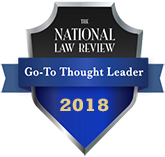With 1,000 lawyers in the United States, Asia, Europe and the Middle East, Hunton Andrews Kurth LLP serves clients across a broad range of complex transactional, litigation and regulatory matters. We are known for our strength in the energy, financial services, real estate, and retail and consumer products industries, as well as our considerable experience in more than 100 distinct areas of practice, including privacy and cybersecurity, intellectual property, environment, and mergers and acquisitions. Our full-service litigation practice is one of the largest in the country, with particular depth in key litigation markets such as Texas, California, Florida and the Mid-Atlantic.
Since 1901 and our early history in Texas and Virginia, we have worked to uphold the standards set by our founding partners. These individuals built the firm on the principles of unsurpassed client service, adherence to the highest ethical standards, and sustained investments in our local communities and the legal profession. Their core values remain the hallmark of our firm, where we honor and learn from the lessons of the past while keeping our eyes firmly positioned on the future. Today, we serve as trusted advisors to some of the world’s most respected companies—a number of whom we have represented for more than a century—and are vigorous advocates for those who need legal aid but cannot afford it.
Our clients include companies, individuals, governments and institutions from across the spectrum of industries that make up today’s global economy. We represent nine of the Fortune 10 and more than one third of the current Fortune 100. To assist with their myriad legal and business needs, we work seamlessly across jurisdictions, bringing together cross-disciplinary teams with extensive industry, legal and strategic planning experience to devise tailored solutions that can overcome current challenges and mitigate future risks.
Hunton Andrews Kurth lawyers and practices are frequently recognized in Chambers USA, Chambers Global and Legal 500, as well as Bloomberg Capital Markets Rankings, Benchmark: Litigation and other legal guides.
We have a substantial presence in centers of commerce and government across the United States, with more than 150 lawyers in each of our Houston, New York, Richmond and Washington, DC, locations. We also have offices in Atlanta, Austin, Boston, Charlotte, Dallas, Los Angeles, Miami, Norfolk, San Francisco and The Woodlands. Internationally, we serve clients all over the world from offices in Bangkok, Beijing, Brussels, Dubai and London.












